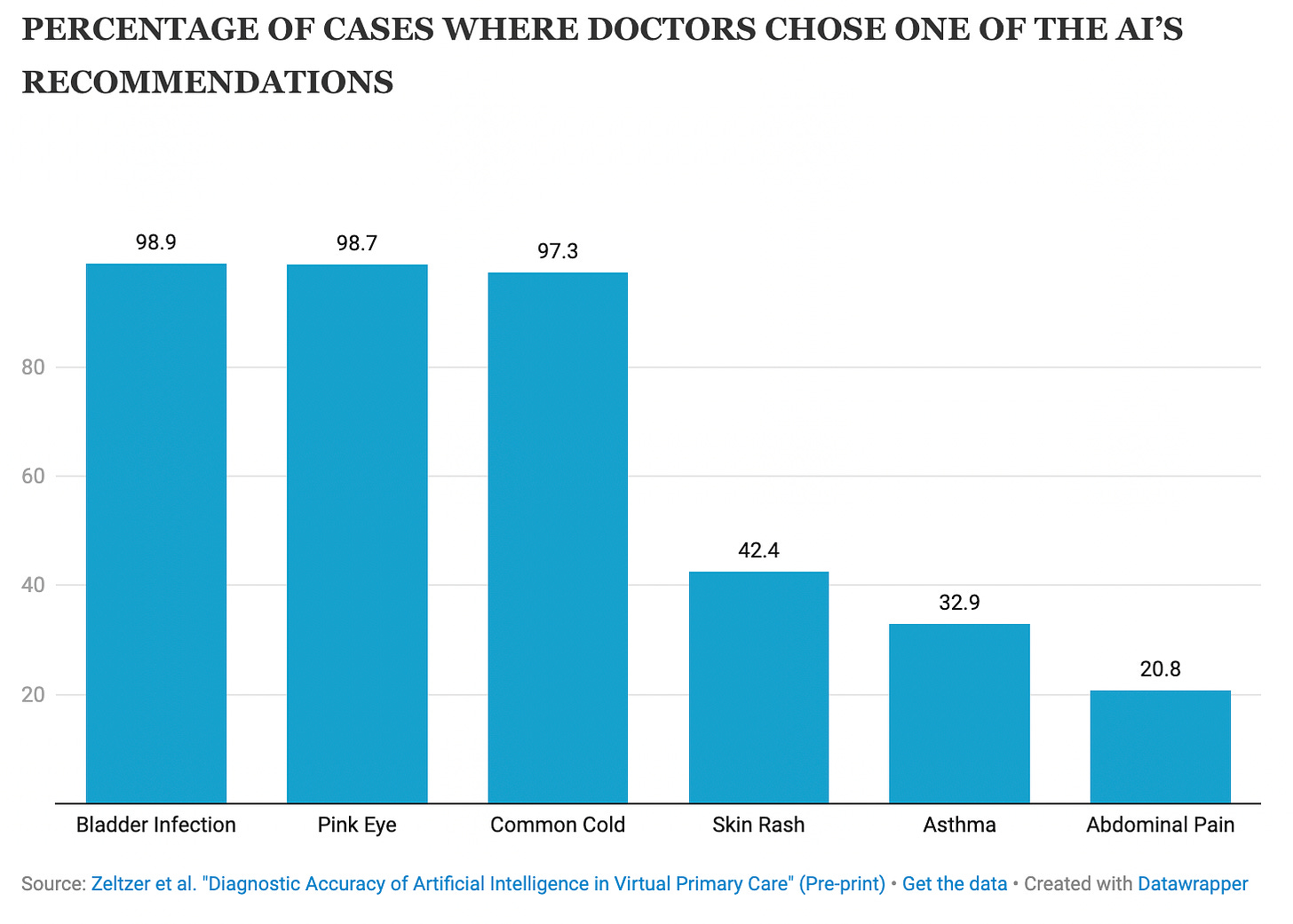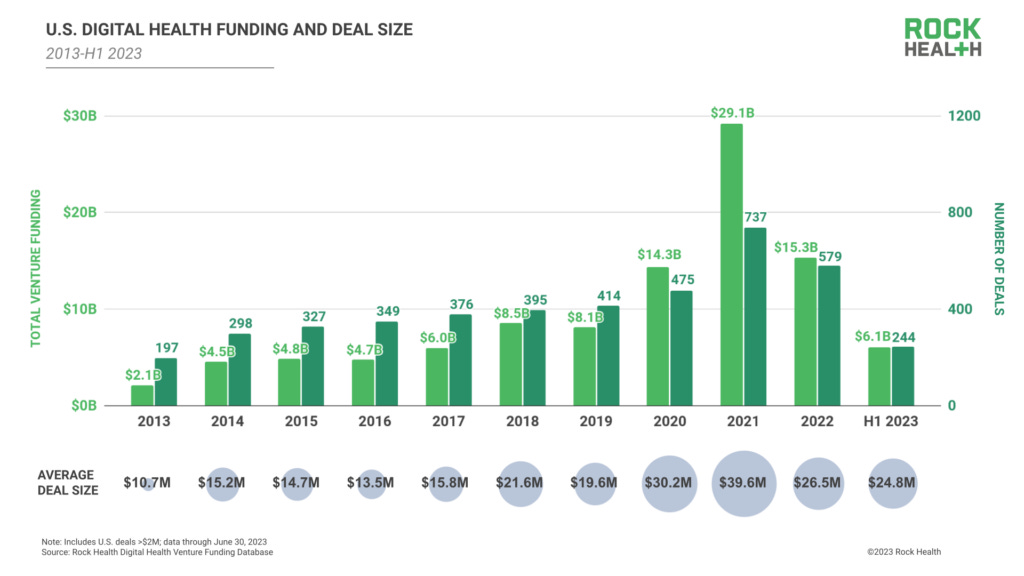#26 Healthtech reality check 💉
Also: crumbling primary care, guinea pigbots, & super fast cars.
Think about it 💡
📈 The good, the bad, the actually evaluated. Ah, digital health. The realm of promise and pitfalls. To address this, the Peterson Health Technology Institute was launched with $50 million in funding. This nonprofit initiative aims to evaluate health technologies' impact on costs and quality independently. Its goal is to help patients, payers, and providers distinguish between over-hyped products and those that truly make a difference. The institute plans to release its evaluation methodology by September and start publishing reports on specific health sectors in 2024.
👩⚕️ The aftermath of the COVID-19 pandemic has left primary care in a precarious state. Just 1% of clinicians believe they've fully recovered, while 61% describe the system as "crumbling." Staffing shortages and burnout are rampant, with 32% facing high stress. Administrative tasks have soared 15%. Private practice consolidation is increasing, which may tackle these admin pickles, but could lead to higher costs for patients seeking care. A challenging road to recovery lies ahead.
Guinea Pigbots 🐷
Could AI chatbots, particularly language models like GPT-4, be considered as substitutes for human subjects in research?
💡 Some argue that these language models have shown remarkable accuracy in mimicking human behavior and responses, making them valuable assets in fields like psychology, political science, economics, and market research. They could offer a cost-effective and time-saving alternative, acting as stand-ins for human participants in pilot studies and experiment design.
🔬 Against this backdrop, researchers had GPT-3.5 assess 464 scenarios, previously judged by humans, on an ethics scale from -4 to 4. The system's eerily humanlike responses closely matched the human judgments, with a correlation coefficient of 0.95.
🥼 However, certain scientists, including Eric Topol, are skeptical. LLMs such as GPT-4 have significant problems with biases and inconsistencies, as evidenced by receiving different responses to the same prompt. Such reproducibility could be tricky to achieve in other areas of medical research.
Neat News 🗞️
👩 Rwandan women's health start-up Kasha raises $21 million to develop its last-mile distribution platform for pharmas and consumer health in East Africa. Neat.
🏥 This AI chatbot has helped doctors treat 3 million people - and could be coming to a hospital near you. Super neat.
💸 Peppermint launches out of Redesign Health with $8 million in seed funding to combat loneliness among older adults. Ultra neat.
Clean Content 🧼
🧐 Healthcare things Out-Of-Pocket’s Nikhil Krishnan is watching in 2023.
💰 Rock Health’s insights on H1 2023 digital health funding.
🧠 Want to know what AI medical scribes are out there? We've summed it up in a neat lil blogpost for ya.
This is what you came for 🍑
🏎️ In a delightfully audacious experiment, researchers bravely ventured into the realm of male psychology, uncovering an *unexpected* correlation between self-perceived manhood and luxury sports cars. Turns out, gentlemen who thought they were packing light in their nether regions couldn't resist the siren call of those sleek speed demons. Apparently, the faster the car, the bigger the... self-esteem issue?
Byeeee,






